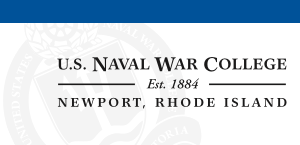Naval War College Review
Abstract
In Shining Path Lewis Taylor provides compelling evidence that the attitude of the people can be decisive in war. That point will not surprise students of war- fare; they will recall that two great strat- egists stressed the central importance of having the people on your side. Focusing primarily on state-to-state conflict, Carl von Clausewitz coined the notion that war’s dominant tendencies make a “paradoxical trinity,” of which one pole comprises primordial violence, hatred, and enmity, a blind natural force. The passions, Clausewitz wrote, “that are to be kindled in war must already be in- herent in the people.” Concentrating on guerrilla warfare, Mao Tse-tung fa- mously wrote that “in the relationship that should exist between the people and the troops, the former may be lik- ened to water and the latter to the fish that inhabit it.”
Recommended Citation
Taylor, Paul D.
(2007)
"Shining Path: Guerrilla War in Peru’s Northern Highlands, 1980–1997,"
Naval War College Review: Vol. 60:
No.
3, Article 17.
Available at:
https://digital-commons.usnwc.edu/nwc-review/vol60/iss3/17

